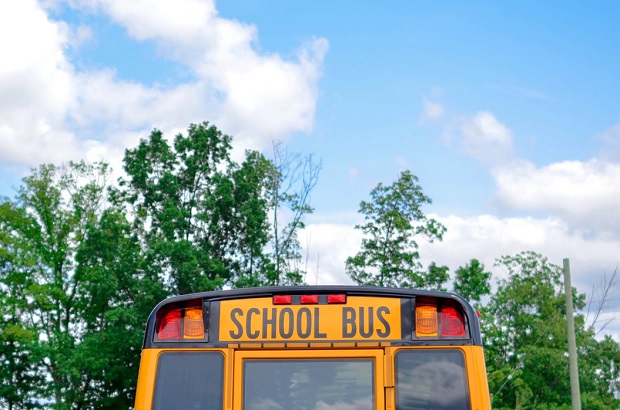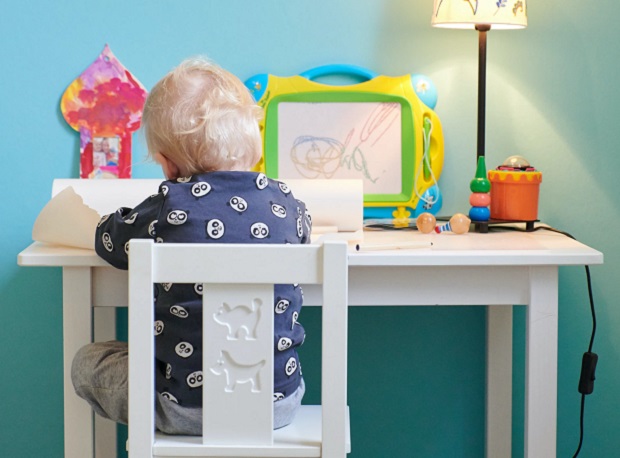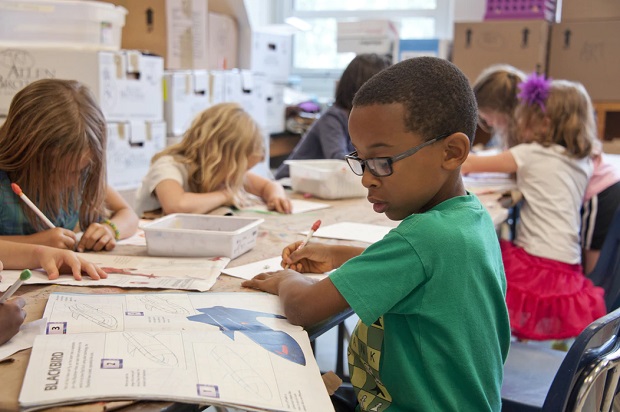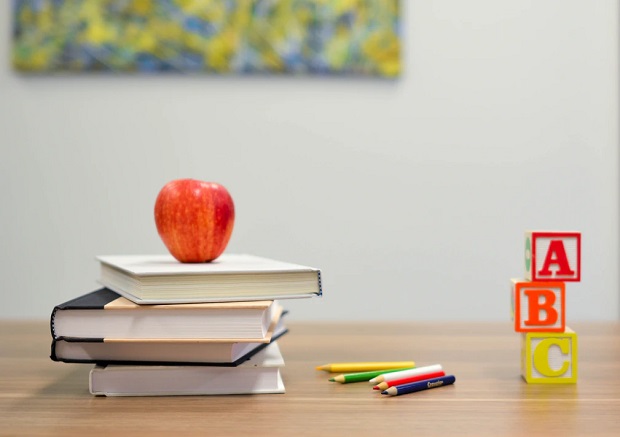10 Things You Can Do To Help Your Child Succeed In School

10 Things You Can Do To Help Your Child Succeed In School
Parents spend a lot of time choosing the right school for their child. Most of them select a school based on how well it can prepare the students for the future. They put their faith in teachers, school directors, and counsellors to use all the relevant data and support available in assisting student success.
However, that doesn’t mean that parents don’t get involved in their child’s education. Effective involvement in the education process is crucial to academic success. As a parent, you want to give your child the best chance of creating a bright future. Therefore, keeping up-to-date with school information and attending teacher-parent meetings can make a big difference. But there is a lot more than parents can do to support their child’s progress. Indeed, here is a short and non-extensive list of tips that every parent can use, things you can do to help your child succeed in school, regardless of how busy their lifestyle or work life is.

Things You Can Do To Help Your Child Succeed In School
Look out for a tutor
It can be tricky for a classroom teacher to dedicate their attention to individual students. A child who doesn’t understand a lesson could fall behind because there is time or no opportunity for the teacher to explain. Unfortunately, teachers need to maintain progress for the whole classroom. They can’t afford to stop a lesson for an individual because it’s simply not the way things work at school. But with qualified academic tutors, your child can at any time ask for a break to clarify some elements. There is no fear of asking questions because it’s a trust, 1-to-1 tuition relationship. If something is unclear, it’s easy to ask the tutor to go back over the lesson of the day, for example. As a parent, you can rest assured that your child is in good hands. Grades will improve rapidly once your child can find a helping hand to understand and test new knowledge safely outside of the classroom stress.
Embrace music teaching
Music lessons can be essential to the overall improvement of a child’s performance at school. Indeed, music activates the language-related part of the brain, which makes it easier for children to process communication skills, including reading and writing. According to a study by Stanford University, mastering a musical instrument improves the way the brain can process the spoken and written language. Additionally, memorising music pieces influences improvements in the overall memory. But what is more surprising is the fact that music encourages children to perform mathematical processes on the fly. In other words, learning to play an instrument is not just for fun. It’s a significant advantage in the educational journey of your child.

A healthy breakfast saves the day
Do schools still offer breakfasts to children? While the option remains available in many schools, it can be helpful to introduce healthy breakfast habits at home. Most families fall into bad habits because they’re rushed for time or stressed out. However, brain food is essential to cognitive processes, regardless of your age! When it comes to children, nutrition significantly aids the development of the brain, supporting learning and concentration. Indeed, poor nutrition could affect your child’s ability to focus in class and succeed in school. So what would be the right breakfast before school? A child’s brain needs protein, carbs, fatty acids, choline, iron, copper, zinc, vitamin A, B, C and D, iodine, and selenium. Providing a boiled or scrambled egg with whole-grain toast can tackle most things while being quick and easy to prepare. If you prefer preparing breakfast in batches, you can make a smoothie with spinach, Greek yoghurt, blueberries and apple, which can be stored in the freezer until you need it.
Stay active to think better
We all know that regular physical activities can help maintain our health. But it’s not only a matter of boosting your metabolism or immune system. Being physically active also boosts your thinking skills and memory. Physical activities encourage the production of growth hormones, which affects the growth and health of blood vessels and cells in the brain. According to studies, the parts of the brain that are associated with thinking and memory tend to be larger in people who exercise. Therefore, it can be helpful to make sports a lifestyle priority in your household. This can simply be done by introducing some time in the evening or the morning to workouts or outdoor games rather than turning the TV on. You could also look out for sports clubs for your child.

Create a peaceful environment
Not every child has room for a desk in their bedroom. But that doesn’t mean they can’t have a quiet learning environment. You can keep the kitchen table clean and free for them to learn their lessons and do their homework before and after dinner. You want to set a workstation that will guarantee undisturbed time. In other words, the living room with the TV isn’t the best spot for learning! But if you can set up a desk underneath the stairs or turn the guest bedroom into a study for your child, you’ll be amazed by the difference it can make. No spare room to convert? A foldable table can be placed in a quiet nook whenever they need it. Also, make sure to respect their efforts by avoiding unnecessary interruptions or noises.
Good bedtime habits
How much sleep do we get every night? The typical adult struggles to get more than a handful of hours per night. We’ve grown used to it, but we forget that rest is essential for the brain. Your child also needs to get plenty of sleep to maintain brain functions. According to specialists, a child aged between 6 and 12 should get 9 to 12 hours of sleep per night. Teenagers up to 18 will need 8 to 10 hours of sleep. Sleep deprivation makes children less attentive and alert in the classroom. Beyond the expected crankiness that arises with tiredness, lack of sleep also makes it harder for kids to learn. The memory becomes less effective when you don’t have enough sleep. It can struggle to recall learned data or to record anything new. Creating good habits for your child also means changing your bedtime routine. Children can find it hard to fall asleep when their parents continue to be loud long past their bedtime, whether your TV or conversations. Help your child succeed in school by making a conscious effort to keep loud noises to a minimum at night.

Encourage positive conversation
Is every school day a pleasure? Probably not! Not every day at the office is driven by joy, so why would things be any different for your child? However, encouraging your child to speak openly and honestly about their struggles and stress at school can help bring peace to unpleasant situations. You don’t want your child to fall behind at school b because of conflicts between classmates. Making it a habit to listen to them and talk about your days together can help normalise all the ups and downs of the day. Building trust is essential as children who feel they can’t talk to their parents are likely to carry additional stress with them. This will interfere with their learning abilities.
Support their curiosity
Your child has just learned about the Great Fire of London and would love to visit the place! Why not plan a day out to take them to the places that have survived the fire of 1666. Many buildings have survived through the fire and testify of medieval London, such as the Tower of London, for example. You could also direct them to the mini TV series The Great Fire, which portrays the events of the fire and its impact on the population. The bottom line is that there are plenty of exciting ways to support your child’s curiosity and help them go beyond the school curriculum.
Making learning fun rather than a chore is what will make the difference in the long term. It can help change their mindset about education and bring life to the knowledge they discover in books.

Don’t compare
Parents want to know the grades to measure their child’s progress. However, grades are about measuring your child’s progress and not comparing them to their classmates. Any form of comparison is destructive, whether you are trying to compare your child versus their friends or their sibling. The more you comment on how they are doing in reference to someone else’s performance, the more likely you are to create a negative approach to learning. Not only does it affect your child’s self-esteem but it is demotivating. A lot of children choose to skip homework because they feel pressured to be more like their friend or older brother.
Reward effort rather than grades
Grades matter. But learning is an individual journey. A child who doesn’t get 100% on every test can still be improving. You need to look at their effort and performance as a whole and discuss anomalies with them. Ultimately, grades are an indicator of performance. Punishing a child who didn’t perform well at school is unlikely to improve their future results. Instead, you want to identify the potential problems with them and focus on their individual journey. Sure, your child is not on top of the class yet, but if they’ve done better than at previous tests then you want to recognise the evolution.

In conclusion, helping your child progress and performance through their education is a combination of emotional and academic support with a healthy lifestyle. Can you think of any other things you can do to help your child succeed in school? Let us know in the comments!
Contributed Article.





